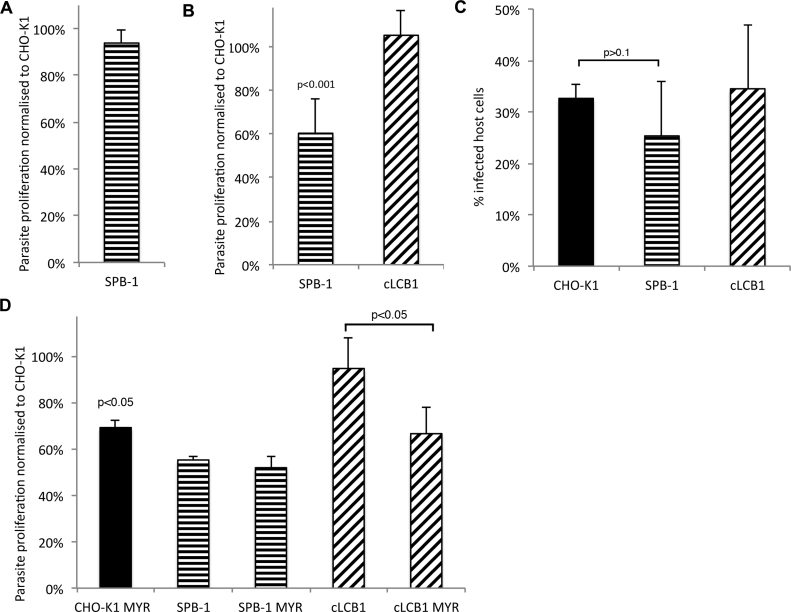Fig. 6.
Analyses of the role of host serine palmitoyltransferase (SPT) in Toxoplasma gondii proliferation and invasion. Cells were cultured in 10% FCS (A) or in serum-reduced media (B) at the non-permissive temperature (39 °C). In the presence of complete media, T. gondii proliferation was the same in wild type (CHO-K1) and SPT-compromised (SPB-1) host cells (A). However, in serum-reduced media proliferation was significantly (p < 0.001) decreased in SPB-1 cells compared to the control (CHO-K1 and SPB-1 cLCB1) lines (B). All results normalised with respect to proliferation in parental CHO-K1 cells. Analyses of 3 independent experiments performed in triplicate, standard deviation indicated. This effect was not due to significant differential invasion of the host cell lines (p > 0.1; C). Analyses of 3 independent experiments, standard deviation indicated. To analyse the effect of chemical inhibition of SPT, cells were cultured in serum-reduced media at the non-permissive temperature (39 °C) in the presence or absence of the inhibitor, myriocin (D). Myriocin treatment reduced Toxoplasma proliferation (p < 0.05) in wild type (CHO-K1) cells to similar levels to those seen in untreated SPT-compromised (SPB-1) host cells. The compound had no effect on proliferation in SPB-1 cells but exerted a similar effect to wild type in complemented mutant cells (SPB-cLCB1; p < 0.05). All results normalised with respect to proliferation in parental CHO-K1 cells. Analyses of experiments performed in triplicate, standard deviation indicated.

